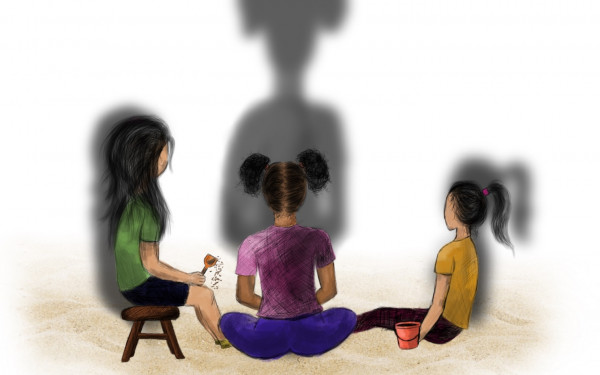Providing Education to Girls Around the World
What began as one businesswoman’s foray into philanthropy transformed into a charity organization that works to improve girls’ education around the world.
Wanda Bedard, founder and president of the 60 Million Girls Foundation, will be giving a lecture on the educational program that was implemented by the organization in Sierra Leone back in 2011. The presentation will take place at the York Amphitheatre in Concordia’s EV building on Oct. 15.
The initiative, based in Sierra Leone’s impoverished Koinadugu district, has set up an assisted learning project for girls using software from the non-profit Khan Academy to tutor students.
The pilot program uses offline Khan Academy tutoring programs to teach a number of topics, including math. The programs were saved on USB keys and transferred to the computers in the classrooms participating in the pilot study.
It’s one of many projects by 60 Million Girls, a foundation dedicated to empowering women by funding educational programs in developing countries.
Bedard started 60 Million Girls in 2006 following the completion of her MBA at HEC. She started a manufacturing company, and began volunteering with UNICEF.
The foundation’s name stems from the fact that 60 million girls worldwide don’t have access to primary education.
For the Sierra Leone project Bedard is working with fellow Montrealer Bev Carrick, co-founder of CAUSE Kids, a chapter of CAUSE Canada which sponsors education for thousands of students and produces studies on micro-financing and agricultural and nutritional education.
CAUSE Kids’ sponsorship and crowd funding provides literacy training for students and mothers, initial financing for community garden programs and pays for school supplies in Koinadugu District, one of the largest, poorest districts in Sierra Leone.
“One of the things we realized [is that] our specialty is not necessarily development,” said Bedard of her collaboration with CAUSE Kids. “What we felt we could do is raise money and we can certainly take the time to analyze projects and our own partners.
“[CAUSE Kids is] already in the field and they already have structure in place and have the community engagement, which is really crucial for a project to go well.”
Despite the program’s success, schools are closed. Ebola has become an epidemic in West Africa, and the quarantined communities isolate sick individuals. 223 health workers who worked with afflicted patients have been reported dead.
“There has been a big prevention program here,” said Carrick. “Nobody is going to school.”
She says she hopes they can find a safe solution for continuing school programs in the area.
60 Million Girls has undertaken 16 projects so far. The team of volunteers selects the most attractive project among the proposals they receive and raises funds for the cause.
60 Million Girls volunteers raised $100,000 for the Sierra Leone program. Bedard had the idea to use a portion of the funds to buy computers. She says she hopes that with bigger investments and the decreasing costs of tablet technology, the organization can reach an even
wider number of girls in rural areas on their programs.
Carrick described the enthusiasm of the students, saying computers are “a rare thing in Sierra Leone.”
“There is nowhere else they can get onto a computer than where we are,” she said.
“Its kind of a win/win/win situation,” she said. “Because you have high school girls going and staying in school [and] you have the young ones looking up and saying ‘Hey, I can go to school!’”
It’s also important to promote education rights up to a high school level to prevent illiterate women from being tricked into signing things they don’t understand, she said.
“[Someone will tell them] their husband died and they’re supposed to get a bit of inheritance. They can sign it away with a thumbprint without knowing what they are doing,” she said. “Often they’re smart, but they don’t know how to read and write.
“You’re cut off from the world without reading and writing,” Carrick continued.
In its aim to remain financially sustainable, CAUSE Kids also facilitates a micro-financing project called The Mother’s Club, where mothers are given the equivalent of $115 CAD as starting capital for commercial crop development.
60 Million Girls seeks to fund projects with similar long-term initiatives, Bedard said.
She and Carrick share a vision for sustainable, long-term projects. Bedard hopes that in addition to literacy efforts, the access to computers can increase the number of teachers in rural areas.

.png)




_600_375_90_s_c1.jpg)
_600_375_90_s_c1.jpg)